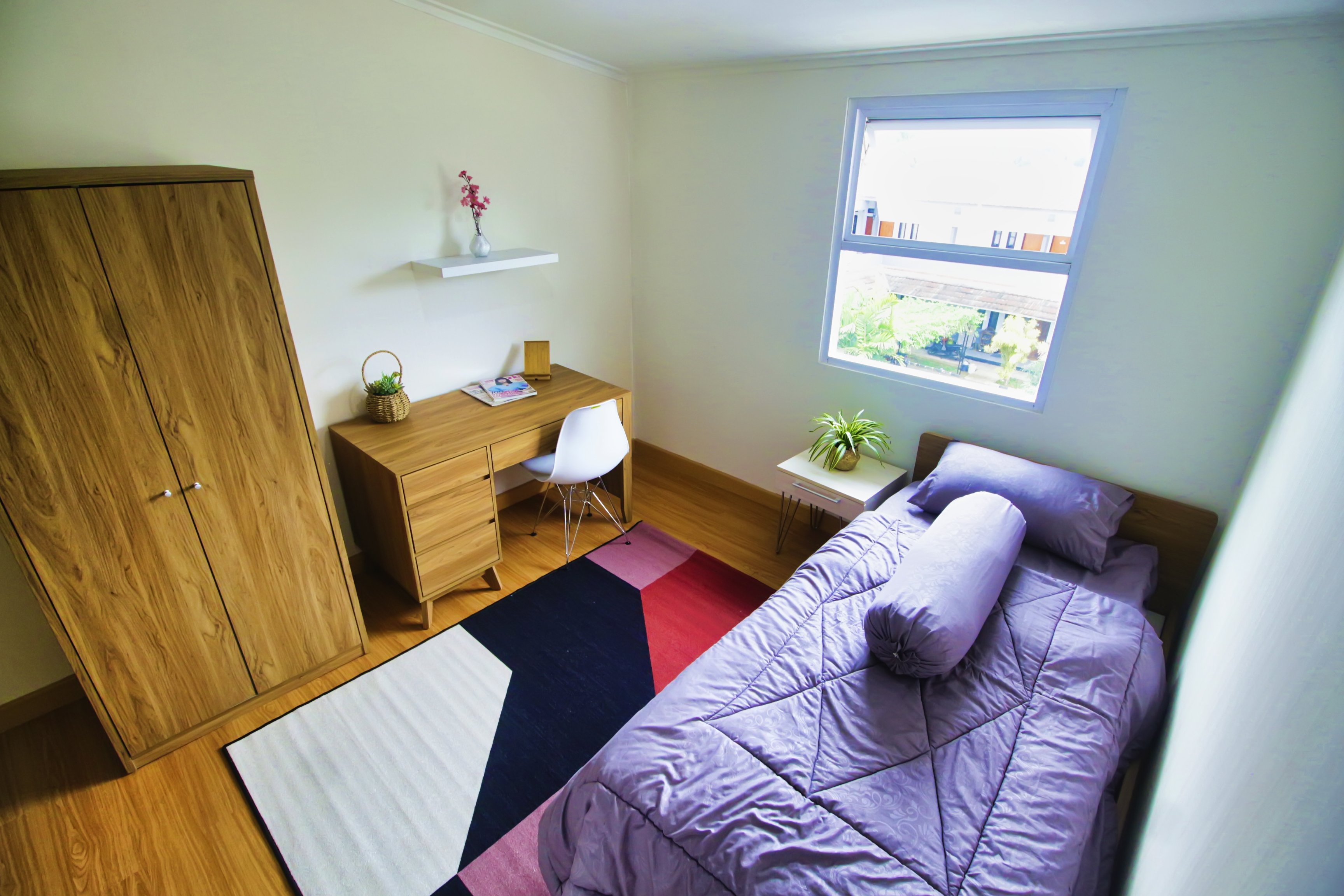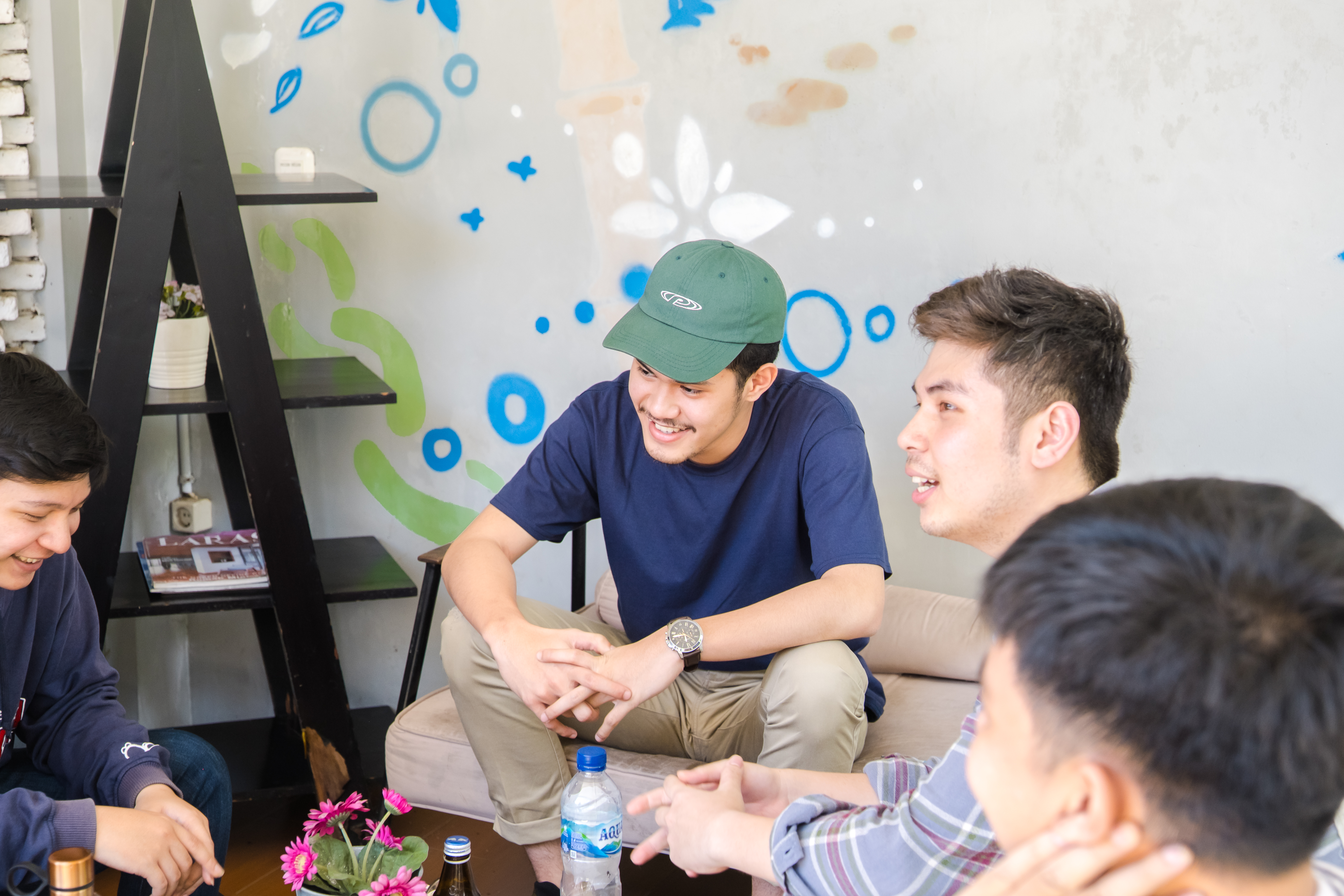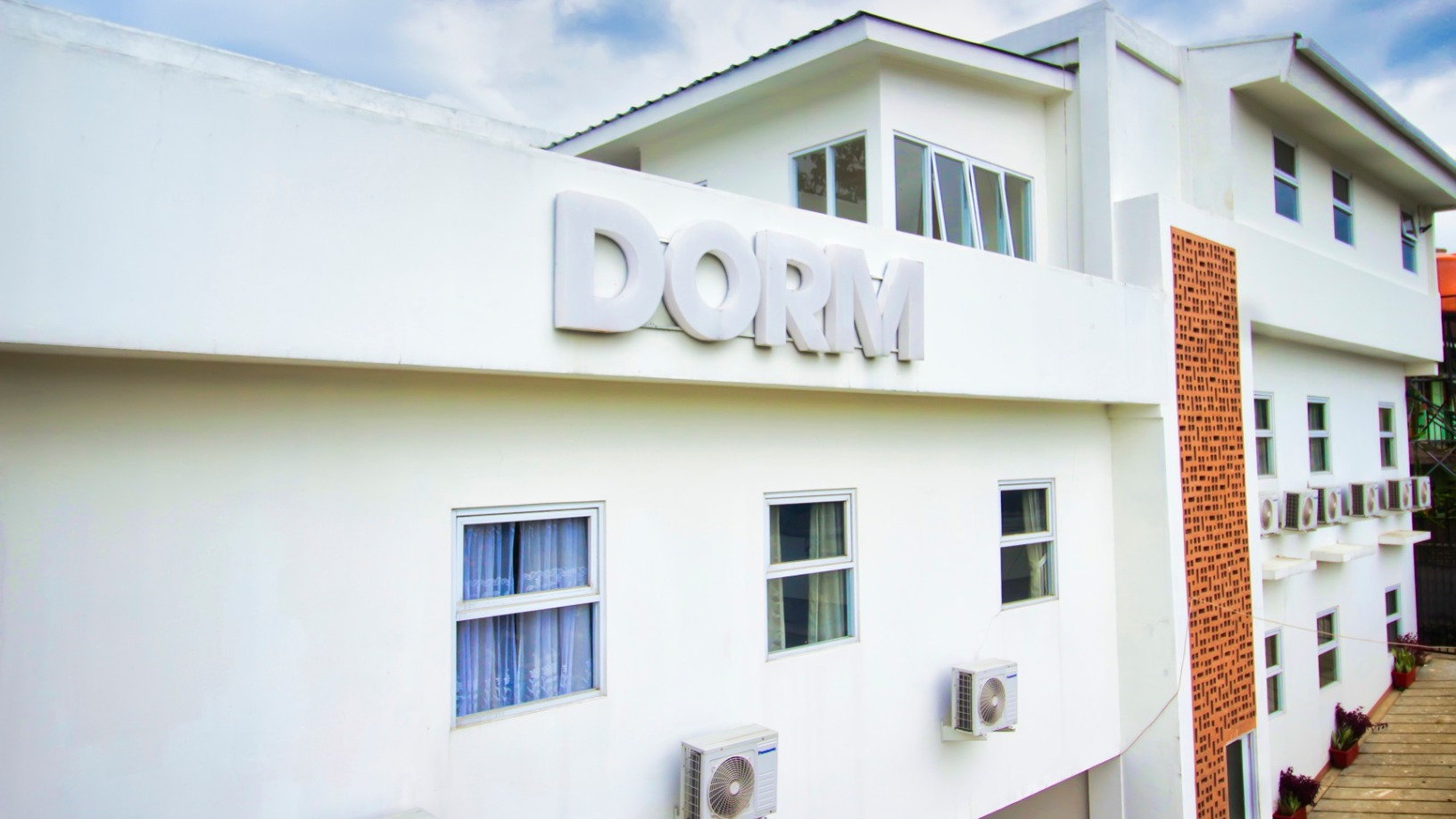A group of overseas-educated startup veterans in Jakarta is offering local tertiary students a new, tech-enabled form of shared accommodation tailored for their lifestyle and priorities, with elements such as co-working and co-creation, healthy meals, and online services from booking and payments to Netflix.
Their startup, DORM, was launched in September 2019, and aims to more than double its housing supply to over 1,000 single-occupancy rooms by the first half of this year. It had 400 rooms as of end-2020 across West Java (Bandung and Jatinangor) and Jakarta, Bogor, Depok, Tangerang and Bekasi areas. The company also expects occupancy to recover to at least 90% by the time the fall semester starts in Indonesia in September 2021, after having dipped to 75–80% during the Covid-19 pandemic.
Most Indonesian college students live at home with their parents or rent a room in guesthouses usually run as family businesses known as “kosan.” Personal apartments or homes are afforded only by a privileged few.
“We all have vivid experiences staying at a kosan in student areas such as Depok, Bandung and BSD (Bumi Serpong Damai) City, where each of our universities was located,” CEO and co-founder Satrio Rama Widyowicaksono said in an interview. “We experienced firsthand how difficult it was to find decent accommodation, in terms of facilities, price-suitability and amenities to support our studies.”
The purpose built student accommodation (PSBA) sector where DORM operates will be the next big business in Indonesia, “a multi-billion-dollar industry with multiple revenue generators inside this model,” he said.
Widyowicaksono, who is Managing Partner of SNM Ventures since 2017, previously worked at Fenox Venture Capital in Silicon Valley, Danone Indonesia and the Indonesian trade ministry.
The other co-founders of the 11-strong company are: Chief Financial Officer Aryo Adinugroho, who co-founded coffee and cafe businesses Kopi Senayan and Gayo Bedetak Nusantara; Chief Experience Officer Ade Safrina Nasution, a former CNBC news anchor and current commissioner at Deta Decon, an Indonesian construction consultancy; and Karaeng R Adjie, co-founder of Sabbia Industries, a downstream fuel supply and logistics management services company.
Online bookings, installments
Since the onset of the Covid-19 pandemic, DORM has been maintaining “a series of strict protective measures and hygiene protocol” that include the use of protective gear (masks, face shields, gloves) for all staff, from cleaners to receptionists; hand sanitizers places in communal areas; thermal monitoring at the gates and regular disinfection of premises, Widyowicaksono said.
“We have been letting our student tenants know that while we are all fighting this pandemic with positivity, it is our endeavor to keep our DORMs 100% Covid-19 negative.”
DORM grows its housing supply by leasing or buying buildings with rooms that it curates with light decorations and design. In fact, DORM curates “the property before we acquire it, so that we could stay light in terms of capex,” Widyowicaksono said.

The company has also begun helping landlords rent out rooms to students and managing the properties, while providing “minimum renovation services” for landlords to help them design the accommodation according to DORM’s student-tailored styles.
Students book their rooms via DORM’s website, which lets them choose by location and pay electronically. About “90% of [DORM’s] properties do not require any deposit,” Widyowicaksono said. Students can rent for a period of three months, six months or annually. So far about 80% of renters choose to book for the full year to take advantage of DORM’s offer of zero-interest instalment payments by credit card for annual rentals.
Renting a DORM room of 12 sqm to 24 sqm costs IDR 1.2m to IDR 4m a month, higher than the average IDR 1m to IDR 1.5m for a room in a kosan. DORM’s rental charge also covers utilities, Wi-Fi, and laundry and sometimes shuttle services, depending on the neighborhoods, with a Netflix account thrown in.
DORM’s customer service staff, Widyowicaksono said, are “ready to respond to complaints and execute within 24 hours. Because, based on our experience, the Indonesian students housing industry is very lacking,” in that regard. This way, students can focus on their studies instead of having to spend time managing their daily chores. Enhanced building security is also offered as a selling point.
Seminars, healthy meals
So far, 700-1,000 students have used DORM. Among its key target users are students from the medicine and engineering faculties who tend to stay late in labs and so prefer to live close to the campus. DORM also markets to students whose homes are far from the campus, including foreign students.
The startup expects to launch more related-products and services by the first half of 2021 to ensure an all-rounded living space for its student tenants, which would include food services, educational and personal consultations, and a variety of onsite stores fulfilling daily and lifestyle needs.
So far, DORM has created DORM Talk, a series of seminars resembling “micro TED talks,” featuring heads of university student executive boards aimed at helping students navigate campus life and the myriad of activities and organizations they can join. Also on offer is DORM Meals, aimed at steering students away from street food, which the startup believes is a more time-consuming yet less healthy option, to dorm meals provided at onsite canteens that are either cooked in-house or supplied by nearby caterers.
Both solutions, Widyawicaksono said, “are based on our founders' experience of how hard it is to study in a totally new environment.”

Widyowicaksono and Nasution met while pursuing their masters at the University of Illinois Urbana-Champaign in US, in Economics and Policy Economics, respectively. It was there while living in a facilitated student accommodation provided by a PBSA developer that both realized how a well-curated dorm for students could truly benefit them in their experience and studies, Widyowicaksono said.
“It's not just a place where we rent a room and sleep there, like the conventional kosan where we used to live,” Widyowicaksono said of his accommodation in the US. Adinugroho, who pursued an MBA at the Rotterdam School of Management, the Netherlands, had a similar experience.
Investment business model
DORM has been profitable and bootstrapping so far, Widyowicaksono said. The co-founders want to keep their independence but remain open to funding opportunities.
“We plan to launch a franchising opportunity for property investors that are interested in investing in the PBSA industry in Q1 2021,” he added.
DORM’s plan targets two group of investors. Retail investors can invest in DORM’s housing without having to commit huge sums up front. “They can simply help us to renovate the rooms and we share the profits.” Based on the high occupancy rate so far, DORM is confident that this franchise model would work well, Widyowicaksono said.
For investors that have more capital to spare, DORM will help them acquire buildings and land, and build the housing from scratch. “We provide them with services in land acquisition, permits, architecture and design, construction, and obviously, management.”
Other new student products and services stemming from DORM’s housing would involve partnering with e-learning platforms and offering specialized courses. Given the way that the space in each building has been designed, with its communal spots, DORM will run like a creative or co-working space, encouraging conversations between tenants. Group activities like pizza parties and movie nights are also on the cards.
“We thought about how in Indonesia’s higher-education academic landscape, where classes only run for four to six hours a day, [student accommodation] buildings can be used as an unstructured platform for higher education students to exchange ideas or culture – solving problems, both academic and non-academic,” Widyowicaksono said.












